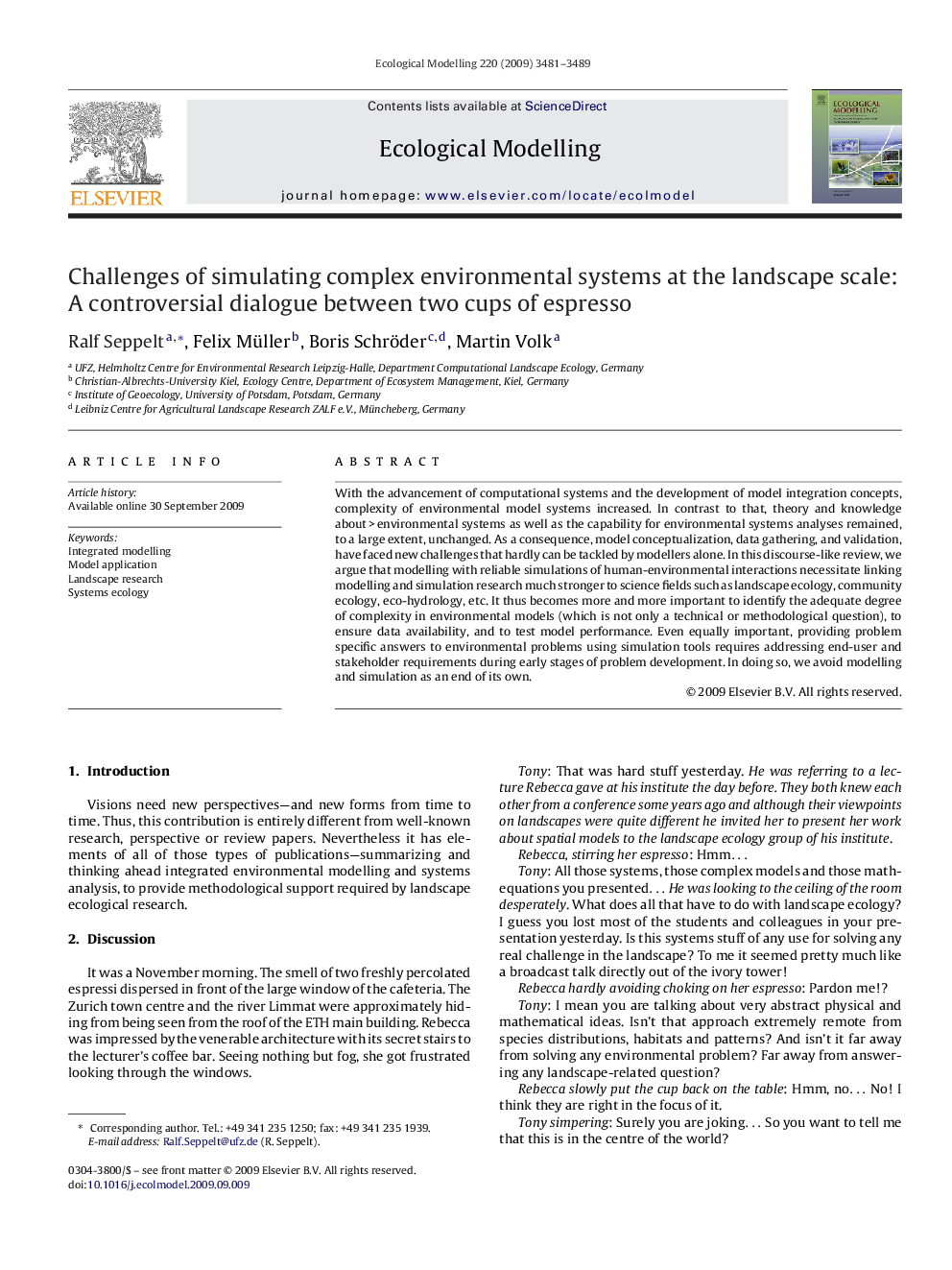| Article ID | Journal | Published Year | Pages | File Type |
|---|---|---|---|---|
| 4377504 | Ecological Modelling | 2009 | 9 Pages |
With the advancement of computational systems and the development of model integration concepts, complexity of environmental model systems increased. In contrast to that, theory and knowledge about > environmental systems as well as the capability for environmental systems analyses remained, to a large extent, unchanged. As a consequence, model conceptualization, data gathering, and validation, have faced new challenges that hardly can be tackled by modellers alone. In this discourse-like review, we argue that modelling with reliable simulations of human-environmental interactions necessitate linking modelling and simulation research much stronger to science fields such as landscape ecology, community ecology, eco-hydrology, etc. It thus becomes more and more important to identify the adequate degree of complexity in environmental models (which is not only a technical or methodological question), to ensure data availability, and to test model performance. Even equally important, providing problem specific answers to environmental problems using simulation tools requires addressing end-user and stakeholder requirements during early stages of problem development. In doing so, we avoid modelling and simulation as an end of its own.
